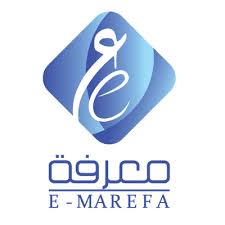Facebook Games for English Language Learning: What Student-Teachers Say?
DOI:
https://doi.org/10.36602/faj/2021.n17.05Keywords:
Digital Game-Based Learning, EFL Instruction, Social Media Games, Student-Teachers’ Perceptions, TEFL Teacher EducationAbstract
This exploratory case study aimed at investigating the student-teachers’ views on using Facebook games for language learning. The participants were 48 student-teachers at the EFL Department of the Faculty of Education at a Libyan public university. They were required to play Facebook games for two weeks and then present their experiences through oral presentations and reflective journals. Data were collected through student-teachers’ presentations and reflective journals. Data were analyzed qualitatively using a thematic inductive approach. Although few student-teachers had negative views, most of the student-teachers had positive views on using Facebook games for learning. They believed that Facebook games teach players following instructions and provide opportunities for language improvement, especially for vocabulary learning. We expect that our findings would provide teachers and practitioners with ideas for classroom research and encourage researchers to conduct further and more rigorous testing on integrating Facebook games into the EFL classroom.
References
Abdallaha, N. S. (2018). Speaking difficulties that face Libyan EFL university students: A case study of first-year students at the Faculty of Arts and Science, Human and Community Studies Journal, 8, 1-17.
Abrar, M., Failasofah, F., Fajaryani, N., & Masbirorotni, M. (2016). EFL Student Teachers’ Speaking Anxiety: the Case in One English Teacher Education Program. Indonesian Journal of English Education, 3(1), 60-75. DOI: https://doi.org/10.15408/ijee.v3i1.3619
Ahmad, J. (2011). Intentional vs. incidental vocabulary learning. Interdisciplinary Journal of Contemporary Research in Business, 3(5), 67-75.
Aldabbus, S. (2008). An Investigation into the Impact of Language Games on Classroom Interaction and Pupil Learning in Libyan EFL Primary Classrooms. A thesis submitted for the degree of Doctor of Philosophy, School of Education, Communication, and Language Sciences, Newcastle University. Retrieved from: https://core.ac.uk/download/pdf/40056248.pdf
Al-Issa, A. S. M. (2011). ELT games and teacher beliefs: The use of games in teacher education in Oman. Reflections on English Language Teaching, 8(1), 35–52.
Ary, D., Jacobs, L. C., Sorensen, C. & Razvieh, A. (2010). Introduction to research in education. Australia: Wadsworth Cengage Learning.
Byrne, D. (1995). Teaching Oral English. Harlow: Longman Group UK.
Cheng, H. F., & Dörnyei, Z. (2007). The use of motivational strategies in language instruction: The case of EFL teaching in Taiwan. Innovation in Language Learning and Teaching, 1(1), 153–174. DOI: https://doi.org/10.2167/illt048.0
Cohen, L., Manion, L., & Morrison, K. (2007). Research methods in education (6th ed.). Abingdon: Routledge DOI: https://doi.org/10.4324/9780203029053
Coffy, A. J., & Atkinson, P. A. (1996). Making sense of qualitative data: Complementary research strategies. Thousand Oaks, CA: SAGE.
Dewi, R. S., Kultsum, U. & Armadi, A. (2017). Using communicative games in improving students’ speaking skills. English Language Teaching, 10(1), 63 -71. DOI: https://doi.org/10.5539/elt.v10n1p63
Dörnyei, Z. (2010). Researching motivation: From integrativeness to the ideal L2 self. In S. Hunston & D. Oakey (Eds.), Introducing applied linguistics: Concepts and skills (pp. 74-83). London: Routledge.
Ebrahimzadeh & Alvi (2017). The effect of digital video games on EFL students' language learning motivation. Teaching English with Technology, 17(2), 87-112.
Foster, A., Mishra, P., & Koehler, M. J. (2012). Digital game analysis: Using the technological pedagogical content knowledge framework to determine the affordances of a game for learning. In M. Khine (Ed.), Learning to Play: Exploring the Future of Education with Video Games. New York, NY: Peter Lang Publications
Garris, R., Ahlers, R., and Driskell, J.E. (2002). Games, motivation, and learning: A research and practice model. Simulation and Gaming, 33(4), 441-467. DOI: https://doi.org/10.1177/1046878102238607
Gee, J. P. (2007). Good video games + Good learning: Collected essays on video games, learning and literacy. New York: Peter Lang. DOI: https://doi.org/10.3726/978-1-4539-1162-4
Godwin-Jones, R. (2014). Games in language learning: Opportunities and challenges. Language Learning and Technology, 18(2). 9 – 19.
Guvendir, E. & Gengiz, D. M. (2015). The effect of a Facebook game that requires English vocabulary knowledge on students’ English vocabulary development. Journal of Educational Sciences Research, 5(1), 41 – 55.
Hadfield, J. (2000). Intermediate Communication Games. Harlow: Longman.
Harris, C. (2006). Meet the New School Board: Board games are back—and they’re exactly what your curriculum needs. School Library Journal, 55(1), 24–26.
Ho, P. P. V., Thien, N. M., Thi, M. & Vy, H. N. N. (2020). The effect of using games on EFL students’ speaking performances. International Journal of English Linguistics, 10(1), 183 – 193. DOI: https://doi.org/10.5539/ijel.v10n1p183
Khudhair, N. K. (2016). Investigating Iraqi EFL Intermediate School Teachers' Perceptions toward Using Language Games for Learning English. Al-Ustath, 219(1), 69-90. DOI: https://doi.org/10.36473/ujhss.v219i1.501
Letchumanan, K., Tan, B. H., Paramasivam, S., Sabariah, M. R. and Muthusamy, P. (2015). Incidental learning of vocabulary through computer-based and paper-based games by secondary school ESL learners. Pertanika J. Soc. Sci. & Hum. 23 (3): 725 – 740.
MacKenty, B. (2006). All Play and No Work. School Library Journal, 52(2), 46–48.
Martinson, B. & Chu, S. (2008). Impact of learning style on achievement when using course content delivered via a game-based learning object. In Ferdig, R. E. (ed.). Handbook of research on effective electronic gaming in education (pp. 478 – 488). Pennsylvania: IGI Global. DOI: https://doi.org/10.4018/978-1-59904-808-6.ch027
Merriam, S. B. (2009). Qualitative research: A guide to design and implementation. Revised and expanded from qualitative research and case study application in education. San Francisco, CA: Jossy-Bass.
Mokhtari, MohammadKazemi, & Kamkar (2016). Computer games and their impact on creativity of primary level students in Tehran. Independent Journal of Management & Production, 7(3), 926-936. DOI: https://doi.org/10.14807/ijmp.v7i3.462
Mubaslat, M. M. (2012). The effect of using educational games on the students’ achievement in English language for the primary stage. Retrieved from: https://files.eric.ed.gov/fulltext/ED529467.pdf
Nguyen, T. M. A., & Pham, V. P. H. (2018). Improving EFL Students’ Speaking Performance by Using Games in the Classroom (pp. 128–137). Conference Proceedings, ISBN: 978-604-922-659-5.
Owen, E. A., Samad, A. A., Razali, A. B., & Noordin, N. (2019). Enhancing Libyan students' English speaking performance through language game and information gap activities. Problems of Education in the 21st Century,77(1), 110-125. DOI: https://doi.org/10.33225/pec/19.77.110
Pathan, M. M., Aldersi, Z. E., & Alsout, E. A. (2014). Speaking in their Language: An Overview of Major Difficulties Faced by the Libyan EFL Learners in Speaking Skill. International Journal of English Language & Translation Studies, 96-105.
Rossi L. (2009), Playing your network: gaming in social network sites. Proceedings of DiGRA http://www.digra.org/wp-content/uploads/digital-library/09287.20599.pdf (retrieved 14.10.2020).
Stojkovic, M. K. & Jerotijevic, D. M. (2011). Reasons for using or avoiding games in as EFL classroom. 1st International Conference on Foreign Language Teaching and Applied Linguistics, 940-947.
Tham, L., & Tham, R. (2012). Is game-based learning an effective instructional strategy to engage students in higher education in Singapore? A pilot study. Journal of the Research Center for Educational Technology (RCET), 8(1), 2-10.
Urrutia, R., & Vega, T. (2010). Encouraging Teenagers to Improve Speaking Skills through Games in a Colombian Public School. Boston.
Wu, C. Chen, G. & Huang, C. (2014). Using digital games for genuine communication in EFL classrooms. Educational Technology Research and Development, 62(2), 209-226. DOI: https://doi.org/10.1007/s11423-013-9329-y
Downloads
Published
How to Cite
Issue
Section
License

This work is licensed under a Creative Commons Attribution 4.0 International License.
All articles published from January 2025 onward are licensed under the Creative Commons Attribution 4.0 International License (CC BY 4.0), which permits use, sharing, adaptation, and redistribution for any purpose, including commercial ones, provided that proper credit is given to the original author and source, a link to the license is provided, and any changes made are indicated.













